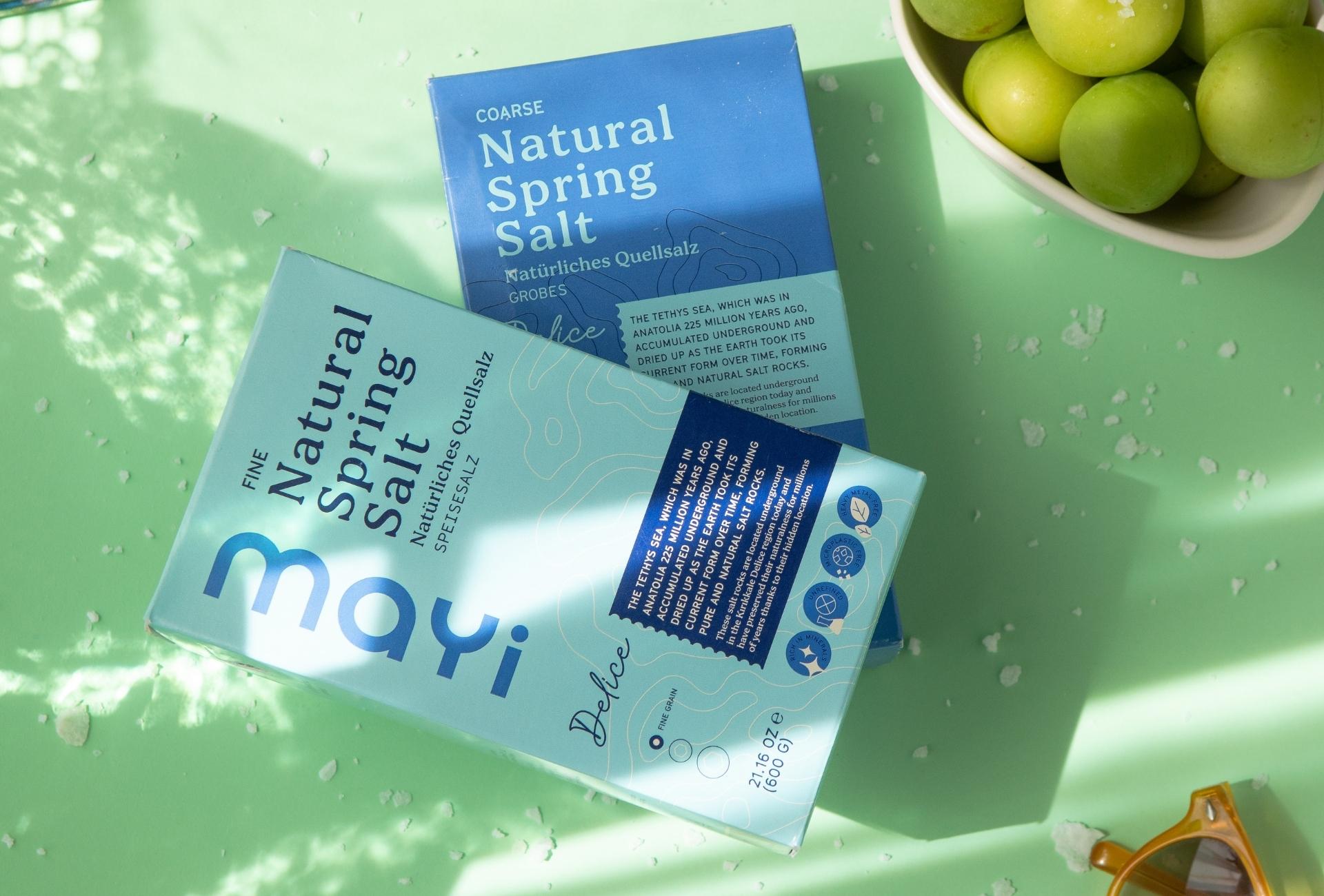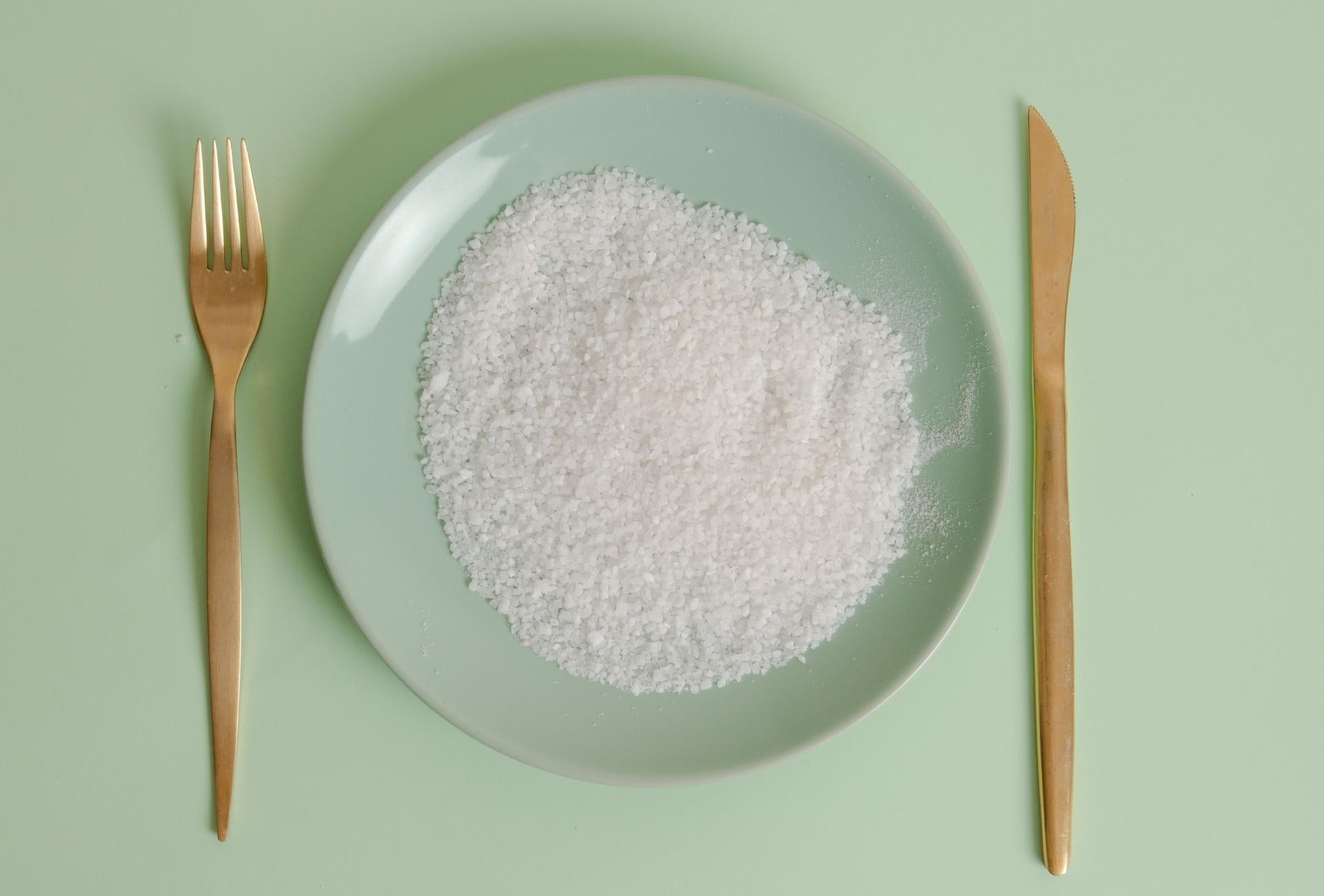Epsom salt is a type of salt that is crystalline and white in color. Its chemical name is magnesium sulfate, expressed as MgSO4.
It can be obtained from natural sources or produced through chemical processes. Magnesium and sulfate ions make up the structure of the salt, and when these ions are absorbed by the body, they provide numerous benefits.
It is used in gardening, fertilizers, beauty applications, skincare, and added to baths to relieve muscle aches. Epsom salt benefits include relieving muscle aches and promoting relaxation during a warm bath. It is also believed to be beneficial for energy cleansing.
What is Epsom Salt?
Epsom salt is a natural mineral. With a chemical name of MgSO4, Epsom salt crystals is composed of magnesium, sulfur, and oxygen. Magnesium is essential for many functions in the body, particularly for the health of muscles and the nervous system. Sulfate, on the other hand, assists in the elimination of toxins and pain from the body.
It is commonly known as English salt among the public. Thanks to its wide range of applications, it is a well-known type of salt. In this blog post, we will take a closer look at the characteristics and benefits of Epsom salt.
What is Epsom salts made of?
Epsom salt is composed of two essential minerals, magnesium and sulfur. This is a natural composition.The organic Epsom salt was discovered in the mineral waters of the town of Epsom in England. Therefore, it is named after this town.
Epsom salt, or magnesium sulfate, is created through mining and refining processes. Magnesium sulfate found in rich mineral deposits is purified, and Epsom salt is obtained.
The obtained Epsom salt is packaged and prepared for sale for various applications.
What are the Epsom Salt Benefits?
Epsom salt provides many benefits both physically and mentally. Among these benefits, the most well-known among the public is Epsom salt's ability to alleviate muscle aches. For this purpose, half a cup of Epsom salt is added to bathwater, and one relaxes in this water for 20-30 minutes. The magnesium sulfate in Epsom salt helps relieve muscle aches and reduce body tension.
In terms of health, another benefit it provides is stress reduction. There is a belief that it also reduces stress mentally after the mentioned bathing process. When Epsom salt mixes with water, it can soothe wounds and injuries on the body, providing an exfoliating effect. Therefore, it is often preferred for beauty treatments.
Epsom salt, used in gardening as well, serves as a natural fertilizer for plants. The magnesium sulfate in it is highly nutritious for plants. To give a specific measure, you can mix 1 teaspoon of Epsom salt in 4 liters of water and apply it to garden plants once a month.
You can also use Epsom salt in hair care routines. Epsom salt for hair can help remove product buildup and promote a healthier scalp.
All these benefits explain why Epsom salt is considered so valuable.
What is Epsom Salt Good for?
Epsom salt, also known as English salt, is known to be beneficial for many things. When added to baths, it is good for muscle and joint pain. When used in body scrubs with various oils, it helps with body imperfections. When dissolved in water and applied to the hair, it nourishes and adds shine. When used in plants, it serves as a fertilizer.
All these benefits have elevated Epsom salt to a valuable status.
 How Is Epsom Salt Used?
How Is Epsom Salt Used?
Epsom salt has a wide range of uses and various methods of application, depending on where it is to be used. Epsom salt uses for:
To use in a bath, a certain amount of Epsom salt is dissolved in bathwater, and one soaks in this water for half an hour.
For use in garden flowers, a solution prepared with Epsom salt is applied to the plants once a month.
For skincare, Epsom salt can be mixed with a preferred body oil and applied to the body to exfoliate dead skin.
How to Make an Epsom Salt Bath
One of the most common uses of Epsom salt is an Epsom salt bath. This is because the minerals in Epsom salt provide many benefits to the body. To prepare an Epsom Salt detox bath benefits are:
- Fill the bathtub with hot water.
- Add about 2 cups of Epsom salt.
- Wait for the salt to dissolve. At this stage, you can also add various oils.
- Once the water is ready, soak in it for 20-30 minutes.
What are the Epsom Salt Bath Benefits?
Of course, there are several reasons why Epsom salt baths are commonly preferred. Many experts recommend choosing the best Epsom salt for your needs based on its purity and magnesium sulfate concentration. Epsom salt provides many physical and mental benefits to the body due to its mineral content.
These benefits include:
- The Epsom salt magnesium content can help relieve tension and promote relaxation.
- Relieving muscle aches.
- Improving sleep quality.
- Enhancing skin health.
- Contributing to the treatment of wounds, psoriasis, and eczema.
- Epsom salt for feet can help relieve tiredness and soreness after a long day of walking or standing.
Side effects of an Epsom Salt Bath
While Epsom salt is known for its many benefits, excessive or improper use can lead to some unwanted side effects.
Epsom salt should never be ingested orally as it can cause digestive discomfort.
It may also cause irritation or dryness on the skin. Therefore, it's essential to perform a patch test on a small area of your body before using it. We should be cautious to avoid these potential side effects.
Before using Epsom salt, it's important to be aware of any potential Epsom salt side effects and consult with a healthcare professional if you have concerns.
Frequently asked questions about Epsom Salt
Frequently asked questions about Epsom salt are as follows:
Is Epsom salt same as sea salt?
Epsom salt and sea salt are both types of salt, and their differences can be summarized as follows:
- They are chemically different. Epsom salt is magnesium sulfate, while sea salt is sodium chloride.
- Sea salt is edible, but Epsom salt is not consumed.
- Epsom salt is primarily used for therapeutic and wellness purposes, while sea salt is used to enhance the flavor of dishes.
Is Epsom salt good for skin?
Pure Epsom salt is often used in various wellness and beauty treatments. These benefits include:
- Provides a radiant complexion.
- Removes dead skin cells.
- Helps achieve smoother skin.
- Unclogs blocked pores.
- Reduces the formation of acne.
How does Epsom salt work?
When Epsom salt dissolves in water, it releases magnesium and sulfate ions. These ions are absorbed by the skin. Once they enter the bloodstream, they play a role in regulating muscle and nerve functions. The sulfate in Epsom salt content also plays an effective role in the process of removing toxic substances from the body. Epsom salt serves as a natural remedy.
How does Epsom salt differ from salt?
The difference between Epsom salt and regular salt lies in their chemical composition. There are differences in the composition of these salts. Epsom salt contains magnesium, sulfur, and oxygen, while regular salt is composed of sodium chloride. Therefore, they have different uses. However, both salts offer unique benefits.




